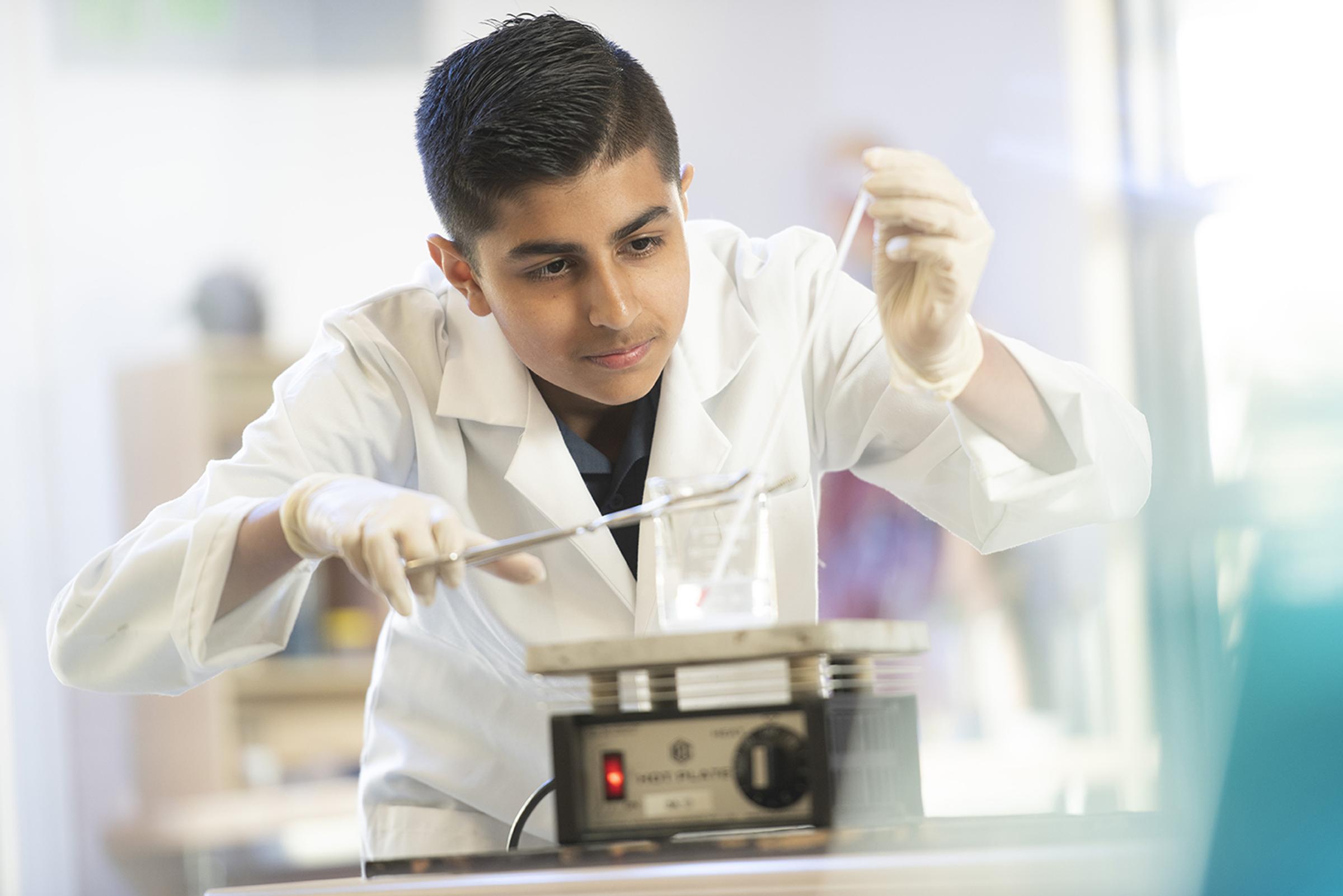Year 8 Program - Semester One

English
Students read the novel ‘Hatchet’: they identify the ideas, themes and issues explored in this text and provide supporting evidence to justify their interpretations. After classroom discussion and analysis, students write an expository essay focused on developing consistency of viewpoint and development of ideas.
In Term 2, students read and consider advertising and persuasive language in a number of forms, such as written, visual and aural. They identify the structures and devices used as well as the implied meanings and messages to analyse how social values are conveyed. Students produce texts to respond and reflect, including their own advertisements and persuasive texts that use a variety of devices to influence specific audiences. They edit their writing for clarity, coherence and consistency of style, proofreading and correcting spelling, punctuation and grammatical errors.
Mathematics
In Year 8 Mathematics, students will be using an online learning environment to support their individualised development. This online learning environment is called Maths Pathways. Maths lessons will be tailored precisely to what each individual student is ready to learn. Students will be filling in gaps in prior learning or working on extension activities. As part of the curriculum, students will be involved in a learning cycle which lasts for a fortnight. In each learning cycle, students work on their own program along with engaging in Rich Tasks, which have a focus on problem solving and real world applications. Rich Tasks will either be individual tasks or activities that require students to work in small groups. They will focus on building a growth mindset towards their maths learning. Towards the end of each term, students will also participate in a Rich Project Task.
Inquiry
Students will explore the key topic ‘Past, Present, Poverty: Liveability for All’. Students will undertake an Inquiry process at the Whittlesea Tech School as well as class discussions that will expose students to a wide range of possible answers to this topic. Explicit skills such as question writing, research and data gathering and visible thinking routines will be taught. Students will then enter into an Inquiry process to answer a key question via an area of personal interest. The completion of a common assessment task at the end of the unit will give students an opportunity to showcase their learning. The unit concludes with a reflection phase where students critique their approaches to learning with the goal of future improvements.
Humanities
In Semester One, students will explore Medieval History and the role the Vikings played in changing Europe at the time. In this unit students will be asked to analyse the role of key leaders like William the Conqueror. They will assess the causes and effects of key events like the Battle of Hastings and examine the role religions, social structures and the bubonic plague played in influencing and changing medieval daily life.
In Geography students will focus on the concept of place through an investigation of livability. They will investigate the features of their community and examine the processes that influence the characteristics of places. They will collect, record and select relevant geographical data and information from useful sources about The City of Whittlesea and analyse it in reference to the factors of Livability. They select and analyse data and information in a range of appropriate forms including maps and other geographical data to develop an opinion regarding the livability of where they live.
Science
Students undertake investigations into the properties and behaviours of both light and sound. They explore how light and sound interact with objects and how the density of different media can affect their speed of travel. They develop an understanding of visible light being part of a broader electromagnetic spectrum and explore the relationship between wavelength and colour. Students explore the development of the particle model used to describe atoms in their three main states. They explore the properties of various materials and observe the difference between, physical and chemical changes that matter can undergo. They learn to show and describe the difference between an element, a compound and a mixture. Through participation in the learning inquiry, students focus on gaining an understanding of the science inquiry process and key skills associated with its investigative nature.
Health
In Year 8 Health the students explore the issues and concepts that all adolescents are faced with during these challenging years. Students investigate various health related issues, including sex, sexuality, respectful relationships, drugs and alcohol, in order to assist and develop their understanding so that they are able to make informed and healthy choices now and in the future.
Physical Education
Students participate in both practical and theoretical sessions to develop their skills and confidence. This establishes a holistic skill-set that will equip them with the tools for future success. Within practicals, students work on their decision making and the execution of skills under pressure. Students learn to modify rules and scoring systems to allow for fair play, safety and inclusive participation. They work on their decision making and execution of skills under pressure. Students are exposed to different roles in a team and how to work together effectively. They explore offensive and defensive strategies and positions. Theoretical concepts explored include the roles and responsibilities within sport, cultural diversity in sport and the way energy systems work during physical activity.
